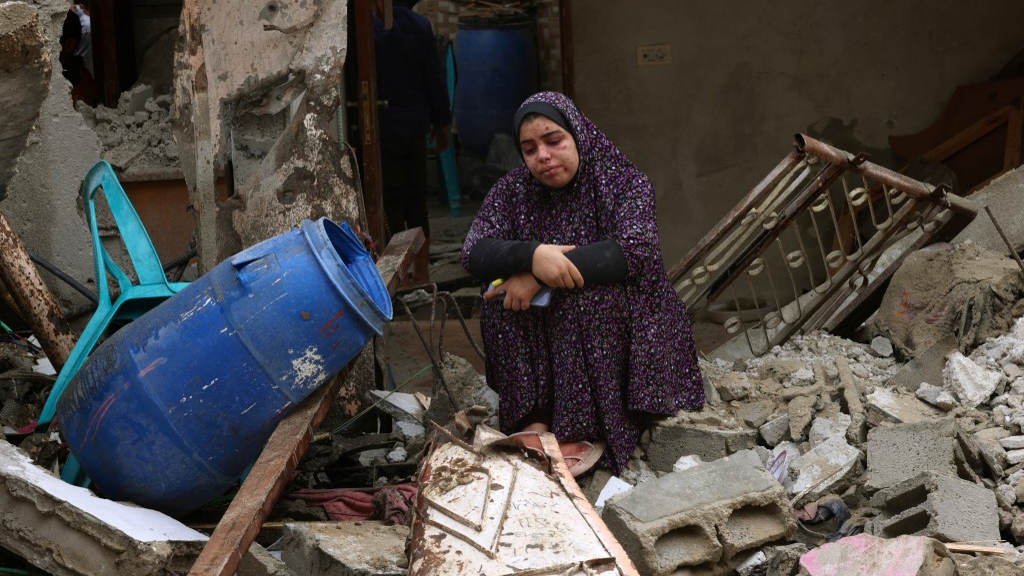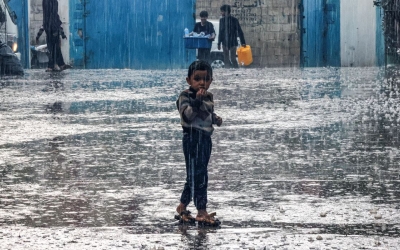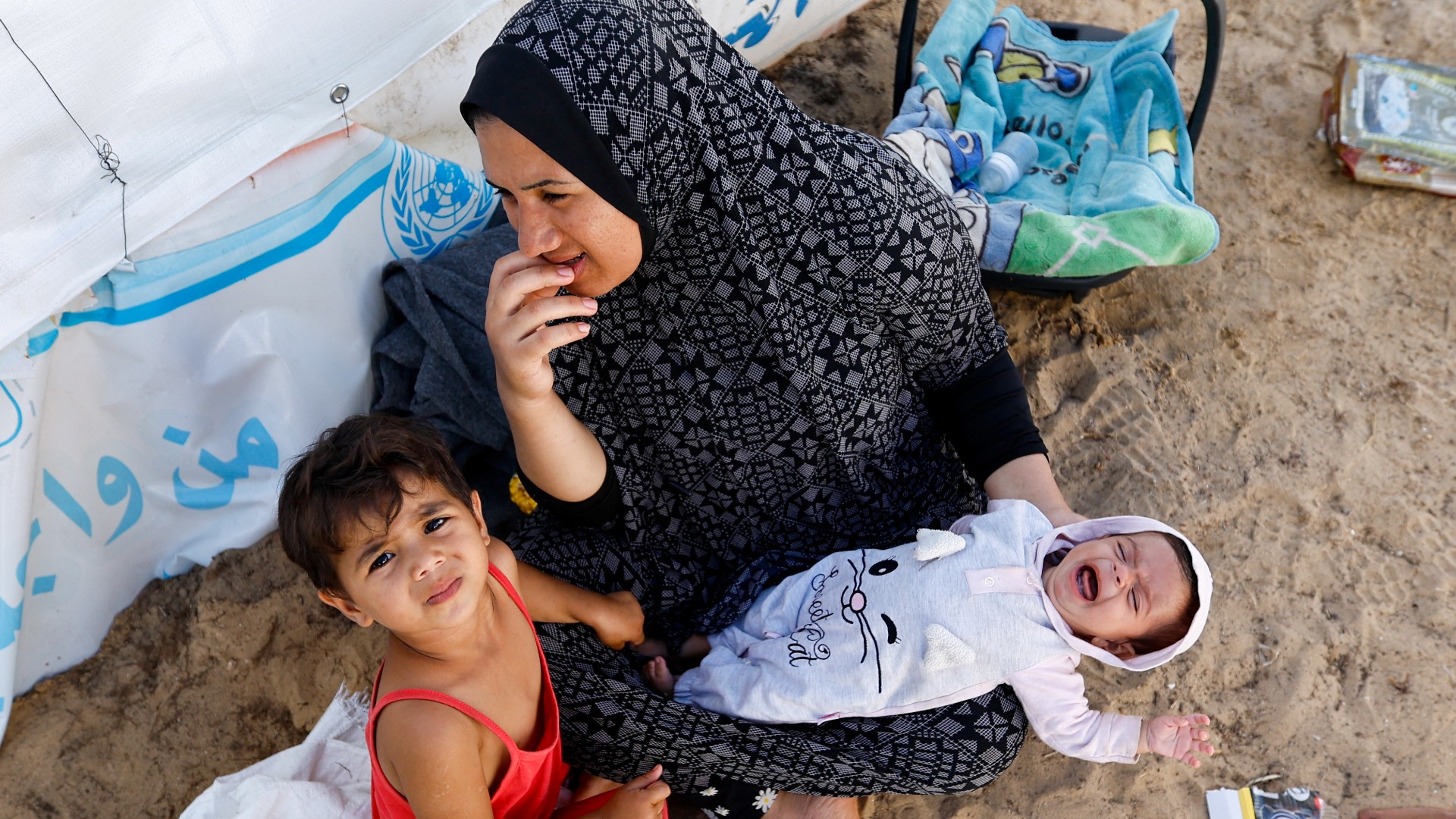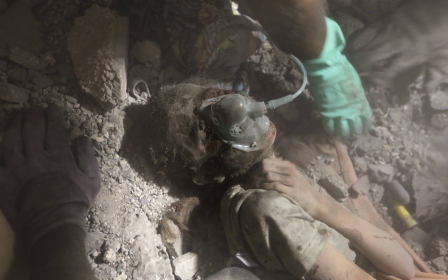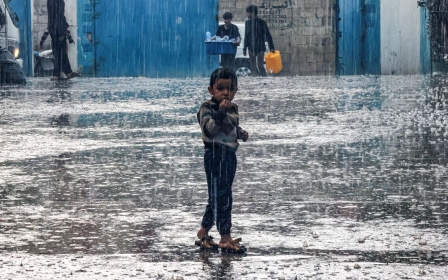Israel-Palestine war: Women in Gaza struggle to find hygiene products amid the siege
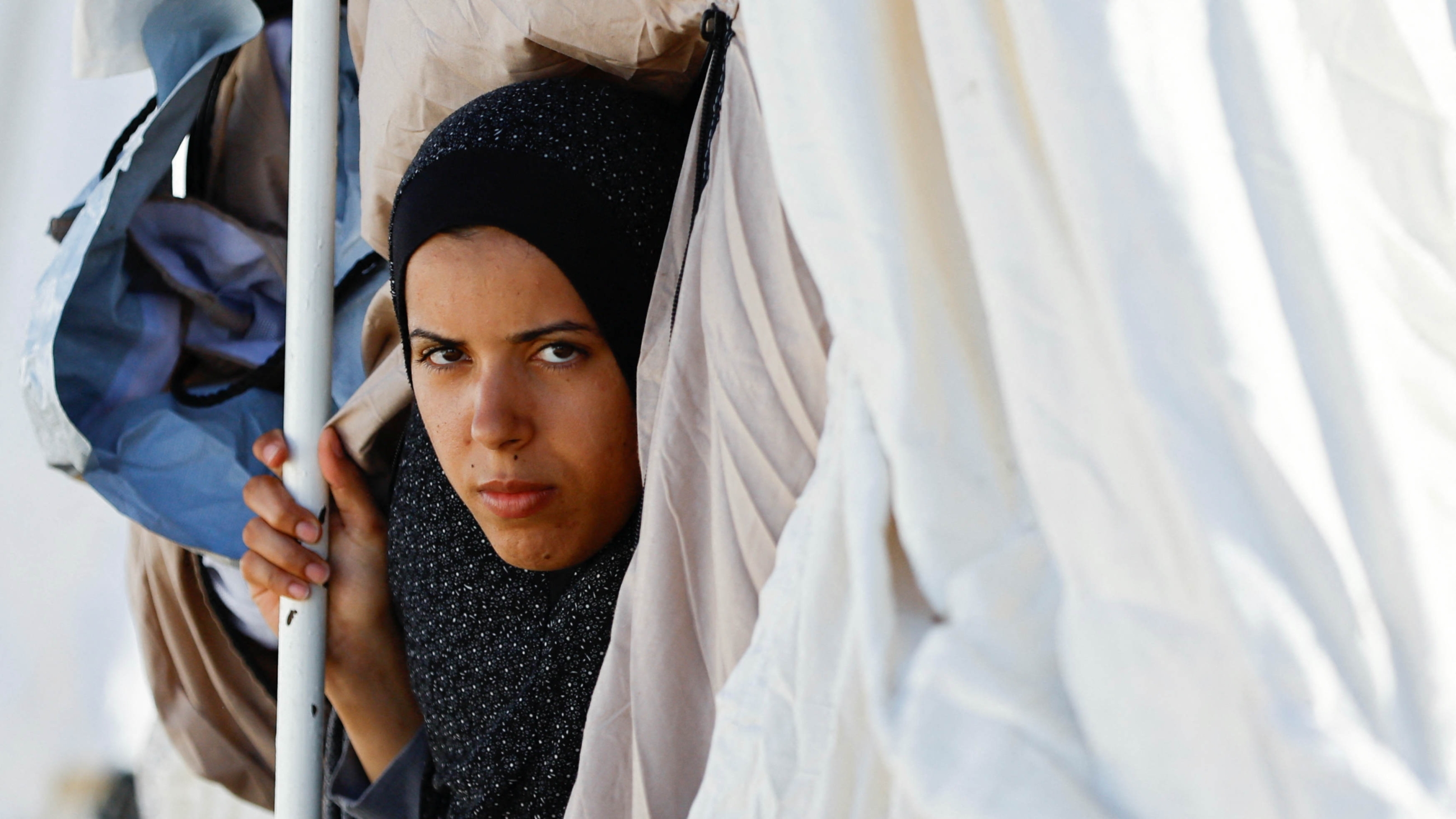
In the Gaza Strip, amid a bombing campaign and a total siege, necessities have now become luxuries, particularly for women, who are having to go to great lengths to find feminine hygiene and health products.
With supermarket shelves and pharmacies emptied of products, and no access to clean running water for over a month, since Israel launched a war on Gaza, women are running out of options.
Relentless Israeli bombing on the besieged enclave has forced women to take desperate measures when it comes to taking care of their health, even if these may be unsanitary and have long-term effects on their wellbeing.
One of the biggest concerns for women has been finding menstruation products and sanitary liners for everyday use.
Hind Khoudary, a contributor to Middle East Eye in Gaza, says that being rendered homeless since the start of the war has exacerbated health issues for her and other women.
New MEE newsletter: Jerusalem Dispatch
Sign up to get the latest insights and analysis on Israel-Palestine, alongside Turkey Unpacked and other MEE newsletters
“My last period was my worst, because I am homeless, I am living out of my backpack, there’s no access to toilets or anything,” she said.
“Any products that you do find now are of bad quality, they can cause irritations and they can be unhealthy to use… it is making me stressed about my next period.”
Khoudary says that the situation has become a nightmare for women, and it is causing a great deal of anxiety.
“All of us women are suffering and talking about the same thing. Some of my friends are saying to wear two pairs of underwear on top of each other, others are saying to wrap your underwear with tissue paper… I never thought I would be in a situation like this,” she said.
'When the war started, the first thing I thought about, even before food, was to stock up on sanitary pads'
- Woman in Gaza
Another woman, who asked not to be named, told MEE that women are walking several kilometres to get hold of sanitary pads, often only to find them sold out.
“When the war started, the first thing I thought about, even before food, was to stock up on sanitary pads to last me a few months, because it’s actually a nightmare if you’re on your period,” she said.
“What exacerbates it is the lack of water and cooking gas during these times. We have resorted to leaving water bottles in the sun for a few hours to warm the water and use it for bathing.”
As water has quickly become a scarcity, and many report suffering from dehydration, showering has also become rationed.
Menstruation-delaying pills
The bombing of residential blocks, hospitals, places of worship and schools also means that 1.6 million people have been displaced across the Gaza Strip since 7 October, leaving people to seek shelter with others in open areas.
According to the United Nations agency Unrwa, around 787,000 internally displaced persons (IDPs) are sheltering in 154 Unrwa buildings, including schools.
Unrwa also said that on average 160 people sheltering in Unrwa schools are sharing a single toilet, and there is one shower unit for every 700 people.
The lack of privacy, coupled with water tanks being specifically targeted by Israeli air strikes, has left women with little choice.
“Some women are taking pills to prevent menstruation, due to the lack of sanitary pads and the lack of water for washing and sterilisation,” one resident in Gaza posted on X, formerly Twitter. "The chance that a girl will find a safe place with water for washing is non-existent.".
'If products do not arrive in Gaza soon, people will pass away due to infections caused by poor hygiene'
– Hajar Darwish, women's health expert
The pills, norethisterone tablets, are typically prescribed for medical conditions such as severe menstrual bleeding, endometriosis, and painful periods.
Some Muslim women may also be prescribed them by a doctor when going to perform the Umrah pilgrimage in Mecca, in order to delay their menstruation, and allowing them to pray.
The pills raise hormone levels and delay menstrual bleeding, but can have side effects, especially if taken long-term. These can include nausea, vomiting and mood swings, among other symptoms.
However, locals on the ground tell MEE that even the pills are in short supply now.
Finding solutions to their needs, while also struggling to find any form of food, has caused suffering for women in Gaza, including increased levels of stress, which has impacted their health and wellbeing.
No privacy, mental strain
Hajar Darwish, a London-based women’s health expert, says that being in a war zone puts extreme physical and mental strain on everyone, especially women.
“People are having to deal with constant death and displacement, and are focusing on how to survive. In a war zone, women will still get their period, will need to use the toilet, change their underwear, they will be pregnant and need to give birth - and because hospitals and homes are being bombed, there are no more clean spaces left,” she told MEE.
According to Darwish, not having correct hygiene practices due to Israel cutting off water supplies will cause “excess strain” on women, and have a significant mental health impact.
“My biggest concern is girls starting their periods for the first time and not being able to find products or people who can speak to them, so they may resort to using rags, ripping off pieces of their clothes. And unfortunately, with the dust, dirt, debris, this will be unsanitary and unsafe and can cause toxicity, illnesses and infections,” she said.
With doctors in Gaza unable to get hold of basic medication, and surgeons having to conduct surgeries with no form of anaesthetic, women’s care has been especially neglected.
An unsanitary environment can cause issues such as urinary tract infections and the spread of disease.
“For some women, the extreme stress may cause their period to stop, and for some it will get heavier,” Darwish explained, adding that it will be traumatic for women.
Some have also raised concerns over women’s health during the upcoming winter months, as temperatures have started dropping in Gaza.
“The weather has started to get colder and the pain of menstruation is already difficult enough while it’s warm at home, imagine the torture of it in Gaza and adding the fact that women can’t get sanitary pads… what’s happening in Gaza is terrible,” one person wrote on X.
Post-birth care neglected
Darwish said that another major concern in Gaza currently is for women who have just given birth and have no access to specialist care.
“Women will have excess bleeding and women will need extra clothing, period products as well as pain relief. Without it, it can be extremely debilitating on the mental and physical wellbeing, it is excruciating,” she said.
Products such as nappies for babies have also run out in supermarkets and pharmacies, meaning that parents are unable to care for their newborns.
Darwish has called on feminist and women’s organisations to speak out on the situation women face in Gaza.
“If products do not arrive in Gaza soon, people will pass away due to infections caused by poor hygiene,” she said.
“Feminist and women’s groups that have been silent need to speak up and support; no matter what their stance is, they need to advocate for women in Palestine.”
With all bakeries in Gaza now out of service after being bombed, and supermarket shelves empty, experts have also raised concerns that women will struggle to have healthy pregnancies due to poor nutrition.
“Women in Gaza will be worried about their unborn foetuses, their baby’s growth and the stress and anxiety,” Darwish said.
This article is available in French on Middle East Eye French edition.
Middle East Eye delivers independent and unrivalled coverage and analysis of the Middle East, North Africa and beyond. To learn more about republishing this content and the associated fees, please fill out this form. More about MEE can be found here.


